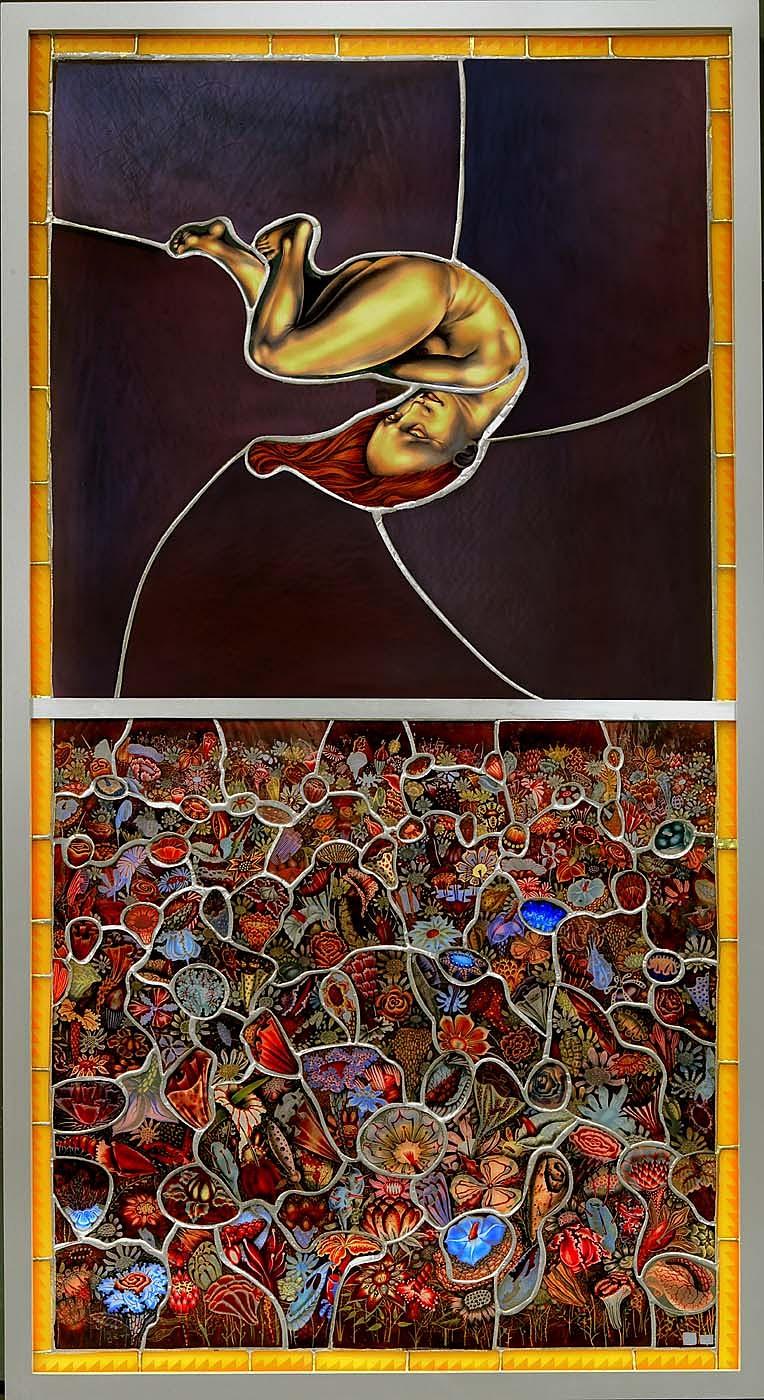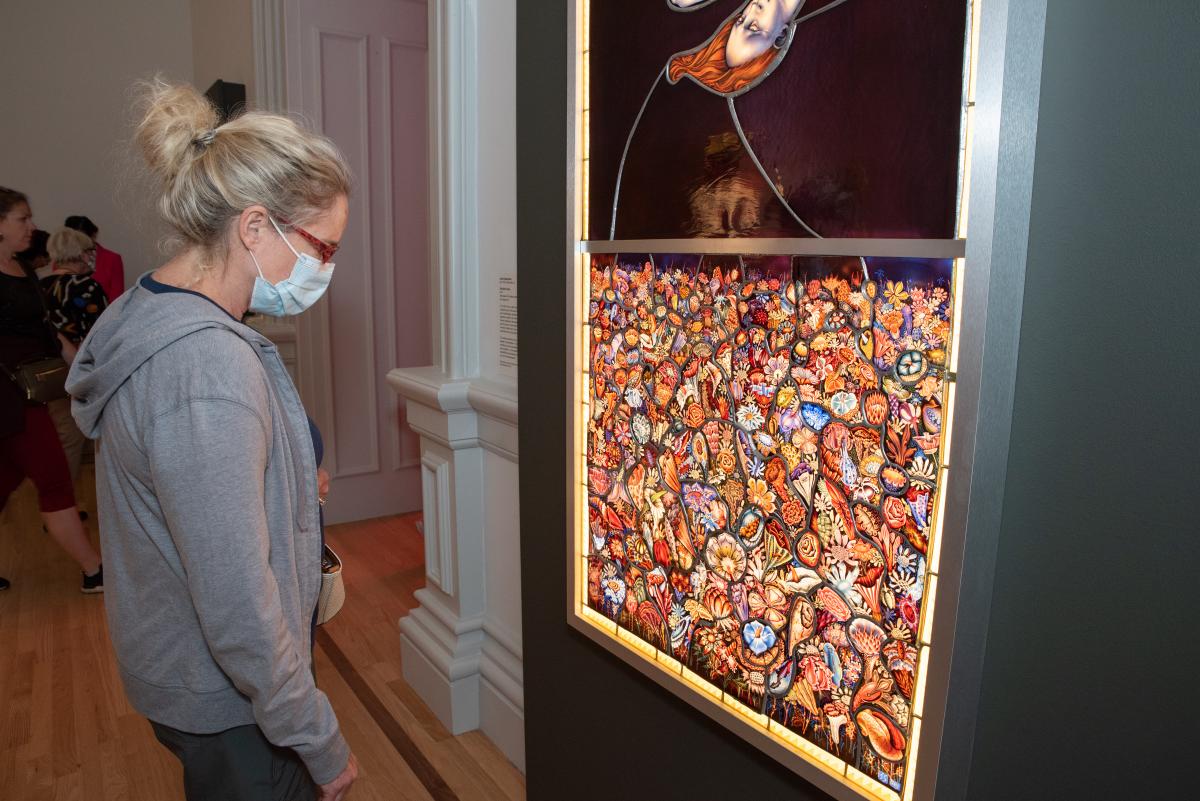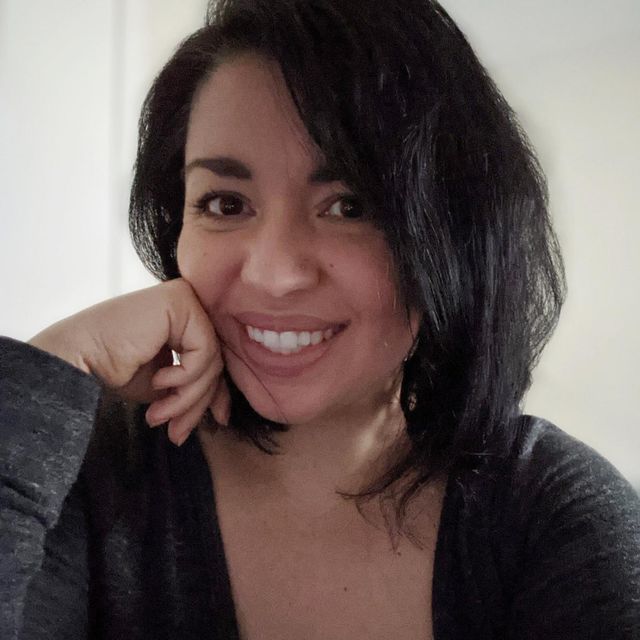Trained as a painter, artist Judith Schaechter fell in love with stained glass in the early 1980s and knew she found a lifelong pursuit in this new medium. Beyond the beauty and technical challenges of the material itself, she is drawn to the focus on time that the medium demands. She states:
Time is a concept that Schaechter frequently visits in her artwork. The Birth of Eve (2013) is part of SAAM’s permanent collection and presents two stacked images. Her technical expertise and the labor involved with stained glass is on display in the lush sea of multicolored flowers, constructed of up to five layers of cut, sandblasted, and enameled glass, stacked to produce variations of pattern and color gradation. At the top, a woman’s naked body shines an unnatural silvery blue that stands out against the dark background, as if suspended in space and time. Together, the images create a tension between disturbing, psychologically charged narratives.
This Present Moment: Crafting a Better World curator Mary Savig asked Schaechter about the role the past and future play in her artwork. She shared her thoughts in the exhibition catalogue.
This Present Moment: Crafting a Better World marks the 50th anniversary of SAAM’s Renwick Gallery by celebrating the dynamic landscape of American craft. The exhibition explores how artists—especially women, people of color, LGBTQ+, and Native artists—have crafted spaces for daydreaming, stories of persistence, models of resilience, and methods of activism that resonate today. In order to craft a better world, it must first be imagined. This story is part of a series that takes a closer look at selected artists and artworks with material drawn from exhibition texts and the catalogue.






















